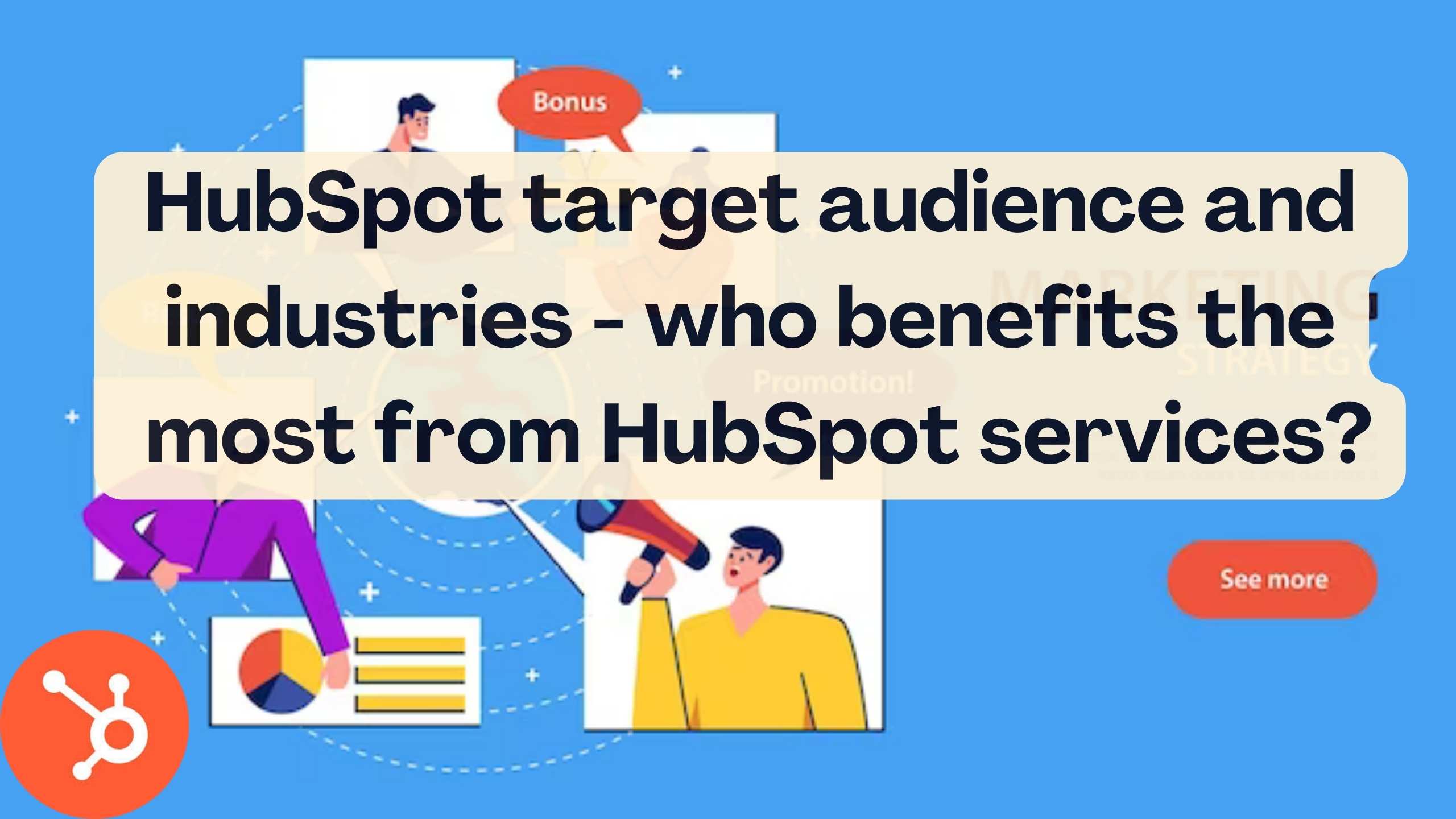HubSpot target audience and industries – who benefits the most from HubSpot services?
- Conversational Marketing Software SEO Software Affiliate Marketing Software Marketing Tools


HubSpot Target Audience and Industries: Who Benefits the Most from HubSpot Services?
In the rapidly evolving landscape of digital marketing and customer relationship management, HubSpot emerges as a leader, offering a suite of tools tailored to businesses of diverse sizes and industries. Understanding the specific target audience and industries that gain the most from HubSpot’s services is paramount for organizations looking to harness its full potential.
Who is HubSpot Best For?
Delving into the question of “Who is HubSpot best for?” unveils a spectrum of businesses and professionals deriving significant value from its offerings.
Small and Medium-sized Businesses (SMBs)
Small and medium-sized businesses often grapple with the challenge of finding comprehensive yet user-friendly tools to streamline their marketing and sales efforts. HubSpot’s intuitive interface and extensive features cater perfectly to the needs of SMBs, allowing them to establish a robust online presence and drive growth without the complexity associated with larger enterprise solutions.
Marketing Agencies
Marketing agencies, with their diverse client portfolios and multifaceted campaigns, find HubSpot to be an indispensable ally. The platform’s centralized approach allows agencies to manage clients effectively, covering everything from lead generation and email marketing to social media management and analytics. HubSpot’s collaborative features facilitate seamless coordination among team members, enhancing overall efficiency.
E-commerce Enterprises
The e-commerce landscape demands personalized customer experiences and targeted marketing strategies. HubSpot’s CRM platform proves invaluable for e-commerce enterprises, enabling them to segment their customer base, automate marketing workflows, and deliver tailored messaging. By leveraging HubSpot, e-commerce businesses can forge meaningful connections with customers, driving increased sales and fostering brand loyalty.
B2B and B2C Companies
HubSpot caters to both business-to-business (B2B) and business-to-consumer (B2C) companies across various industries. Its versatile features, ranging from lead nurturing to customer feedback analysis, empower businesses to tailor their approach based on their unique requirements. This adaptability positions HubSpot as a go-to solution for companies seeking a comprehensive and flexible CRM platform.
Educational Institutions
Even educational institutions recognize the need for effective marketing and communication strategies. HubSpot’s intuitive platform enables schools, colleges, and universities to engage prospective students, alumni, and stakeholders through targeted content, email campaigns, and event promotions. This versatility allows educational institutions to enhance their visibility and maintain meaningful connections within their community.
Relevant SaaS Products
To fully grasp the potential of HubSpot and optimize its functionalities, businesses can explore complementary SaaS products that enhance their overall capabilities. Here’s an in-depth look at some noteworthy options:
1. Salesforce
Salesforce is a leading CRM platform known for its scalability and customization options. It offers a wide array of features, including lead management, opportunity tracking, and advanced analytics. Integrating Salesforce with HubSpot provides a holistic solution for managing customer relationships and sales pipelines seamlessly.
2. Mailchimp
Mailchimp is a user-friendly email marketing platform suitable for businesses of all sizes. With features like customizable templates, automated campaigns, and detailed analytics, Mailchimp complements HubSpot’s marketing capabilities. Integration allows businesses to create cohesive and effective email campaigns within their broader marketing strategy.
3. Intercom
Intercom is a customer messaging platform that facilitates personalized interactions and lead nurturing. Combining Intercom with HubSpot enhances customer communication across various channels, providing a seamless experience from initial contact to conversion. The integration streamlines customer interactions and ensures a cohesive approach to communication.
4. Zendesk
Zendesk is a customer service software offering omnichannel support and robust ticketing capabilities. Integrating Zendesk with HubSpot enables businesses to provide efficient and personalized customer support, creating a unified experience for customers. This synergy ensures that customer service aligns seamlessly with marketing and sales efforts.
5. Google Analytics
Google Analytics is a powerful web analytics tool providing insights into website traffic, user behavior, and conversion rates. Integrating Google Analytics with HubSpot enhances the measurement and analysis of marketing efforts. Businesses can gain a comprehensive understanding of their online presence, enabling data-driven decisions to optimize their strategies.
These SaaS products, when strategically integrated with HubSpot, create a comprehensive toolkit that empowers businesses to optimize their marketing, sales, and customer service endeavors.
Conclusion
In conclusion, HubSpot’s broad appeal across diverse industries and business sizes is a testament to its adaptability and effectiveness in the modern business landscape. Whether you are a small business looking to establish an online presence or a marketing agency managing multiple clients, HubSpot provides the tools necessary to succeed.
By incorporating complementary SaaS products and embracing innovative solutions like Subscribed.FYI, businesses can unlock new possibilities for growth, efficiency, and success. The synergy between HubSpot and these tools creates a dynamic ecosystem where data-driven decisions and streamlined operations pave the way for sustained success in a competitive market.
Relevant Links
- HubSpot Official Website
- Salesforce Official Website
- Mailchimp Official Website
- Intercom Official Website
- Zendesk Official Website
- Google Analytics Official Website
- Subscribed.FYI








